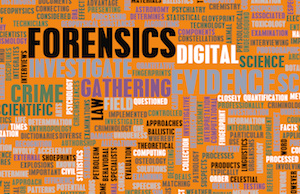By Sanjay Adhia, M.D.
Dementia encompasses degenerative disorders to the brain. It can be subtle and fluctuate in severity even from day to day. It can accompany genetic factors, or be associated with an injury or repeated injuries to the brain and head. It is serious and marked by symptoms that can impair making informed decisions or manage the most basic tasks we take for granted in living our daily lives.
What does “Dementia” Mean?
Dementia is formally known as a “Neurocognitive Disorder,” or NCD. It is described by the CDC as a “general term for the impaired ability to remember, think, or make decisions that interferes with doing everyday activities.” [1]
Diagnosing and Stages of Dementia
Dementia has a variety of stages, from Mild to Major.[2] Dementia itself is not a disease, but rather a broad term that encompasses several conditions, including Alzheimer’s disease.
There are distinct elements to the stages and diagnoses of Dementia [3]. For example, Mild Cognitive Impairment [4] is the transition from normal aging to more serious decline into Dementia.
Disease of the Elderly
Dementia is usually seen in older people. However, while some elderly people may have mild age-related cognitive decline, most do not develop Dementia. This is not to say that young people never develop Dementia, but the reasons are usually different and not as common.
Thinking Clearly
Regardless of the age of a person with Dementia, this serious condition can impact a person’s ability to make important decisions that require clarity of thought. Arguably, a person is impaired if they no longer can lucidly think through the benefits and consequences of a decision.
Informed Decisions, Dementia and Competency
If a person with Dementia is making a will or trust, selling real estate or a business, or making gifts of money, art or other tangible items, the potential legal consequences are troubling. Signing or revoking a financial power of attorney are also acts that require competency, as is signing or revoking a medical power of attorney, sometimes called a “living will.”
Assessing if Dementia is or is not present is a job for a physician qualified to assess neurocognitive disorders. Everyone, including doctors, are alerted by signs and symptoms that raise the possibility Dementia is present.
Signs and Symptoms
Dementia involves problems with memory, attention, communication, reasoning and visual perception. Signs of Dementia may include:
- getting lost in a familiar neighborhood
- forgetting the name of someone close
- forgetting cherished memories
- losing the ability to complete tasks independently, such as activities of daily living (ADLs) or instrumental activities of daily living (IADLs)
- confusion that is out of character
- personality or behavior changes
- apathy and withdrawal
- depression
- paranoia
- difficulty with balance, walking and eating
- incontinence
- communication impairments, struggling with word choice, changed mastery of vocabulary, aphasia (loss of ability to understand or express speech)
Activities of Daily Living (ADL) and Instrumental Activities of Daily Living (IADL)
How we cope with a daily routine of tasks can change when Dementia is present. This figure illustrates the differences between ADLs and IADLs. Dementia can impact both. Difficulty carrying out ADLs or IADLs may be an alert that a physician should assess if Dementia is present or in the early stages. Dementia can be severely disabling when people cannot perform the basic tasks of life, from bathing to paying bills.

Causes
There are many disorders and conditions that result in the loss or damage of neurons and their connections in the brain, leading to Dementia.
This table contains some of the most common causes or features of conditions associated with Dementia, such as Alzheimer’s Disease, Lewy Body Dementia, Stroke (Vascular Dementia), Parkinson’s Disease, TBI, and others.
| Alzheimer’s Disease |
Most common cause of Dementia (60–80{d61575bddc780c1d4ab39ab904bf25755f3b8d1434703a303cf443ba00f43fa4} of all cases). Symptoms include initial loss of recent memory, later loss of remote memory, and eventual personality changes and difficulty with walking and talking. |
| Vascular Dementia |
10{d61575bddc780c1d4ab39ab904bf25755f3b8d1434703a303cf443ba00f43fa4} of Dementia cases are caused by strokes or other vascular problems. Progresses in a stepwise fashion with sudden drops in functioning. |
| Parkinson’s Disease Dementia |
Parkinson’s Disease Dementia and Lewy Body Dementia result in memory deficits. There may also be movement or balance problems such as stiffness or trembling. Additional symptoms may include changes in alertness, visual hallucinations, and insomnia. |
| Fronto-temporal Dementia (FTD) |
There often are prominent changes in personality and behavior leading to impaired judgment and inappropriate behavior. Problems with language skills may also be present. |
| Mixed Dementia |
Some people with Dementia who are typically 80 or over may have a combination of conditions causing their Dementia, such as concurrent Alzheimer’s disease and Vascular Dementia. |
| Reversible Causes [6] |
Dementia can be due to a reversible cause such as medication side effects, increased brain pressure, thyroid hormone abnormality, subdural hematoma, brain cancer, infections, poisoning, normal-pressure hydrocephalus, anoxia, or vitamin deficiency. |
| Other Causes |
Other causes of Dementia may include Traumatic Brain Injury (TBI), Huntington’s disease and Creutzfeldt-Jakob disease. TBI and mTBI (mild TBI, i.e., concussions) can lead to Dementia. We see this in sports injuries like repeated concussions in boxers or football players. |
Diagnosis
Diagnosing Dementia involves a clinical exam with a history and physical along with a mental status exam. The workup may also include labs, neuroimaging (such as an MRI [7]) and neuropsychological testing.
Psychiatrists, neurologists, geriatricians and physical medicine and rehabilitation (PMR) doctors are the specialists who generally diagnose Dementia. Neuroradiologists can assist with the diagnosis.
Neuropsychological tests administered by a qualified licensed neuropsychologist can be helpful to the physician in diagnosing Dementia.
Many physicians, myself included, are trained and certified to perform the Montreal Cognitive Assessment (MoCA), a frontline screening test. The MoCA is a cognitive screening test designed to detect mild cognitive impairment (MCI) and Alzheimer’s disease. Administering the MoCA is a decision for a neuropsychologist or physician certified to do so. A MoCA is not indicated in every case. It is worth noting that neuropsychological testing or neuroimaging in and of itself may not be sufficient to render a diagnosis.
Delirium vs. Dementia
It is important to be able to distinguish Delirium from Dementia. Delirium is generally caused by a medical condition or toxicity. Often, they can co-occur. Generally, Delirium is characterized by:
- Acute onset
- Fluctuating course
- Altered consciousness
Typically, Dementia has a more gradual onset and progressive course and is usually with intact consciousness.
Treatment
Treatment for Dementia depends on the cause. Some causes, like Alzheimer’s Disease, have no cure, but there are treatments that can modestly improve cognition in some individuals or slow the rate of decline.
Additionally, there are medications that can be useful in protecting the brain or helping with mood or behavioral disturbances.
Maintaining a healthy lifestyle with diet and exercise and maintaining social contacts can be preventive.

Dementia and Medical-Legal Implications
Dementia can impact a variety of cognitive domains and other abilities. It may result in changes in competency or behavior.
People of all ages are used to making decisions, presumably informed and logical.
Civil litigation and criminal cases generally involve decision-making moments. If Dementia in any way impairs a person’s competency, the Trier of Fact is better able to make a judgment when a forensic evaluation is conducted to determine if a Neurocognitive Disorder like Dementia is a factor. Thus, Dementia may present with a variety of medical-legal consequences.
Malpractice and Medical Negligence
Some individuals with Dementia are in institutional settings such as nursing homes, assisted living, or geriatric psychiatric facilities where there could be instances of medical malpractice.
In fact, Dementia can interfere with a person’s ability to assess their own medical care and/or report malpractice or negligence. In advanced Dementia, self-advocacy is unlikely if not impossible.
Negligence in care is not limited to medical treatment. Those with Dementia may also have a higher risk of falls due to multiple reasons, including getting lost or the effects of medications. Staff in facilities caring for those with Dementia will benefit from training about such risks.
Additionally, certain medications, both prescribed and over-the-counter, can complicate or worsen Dementia. Impairment in cognition, for example, can co-occur with the use of certain prescription or over-the-counter medications, such as oral antihistamines like Benadryl (with anti-cholinergic activity)[8]. Caregivers need to be aware of these concerns.
Disability: Impact on Life and Work
Those with Dementia may have decreased ability to perform work-related duties. A Fitness for Duty or other occupational evaluation may be appropriate in such a situation.
Many jobs require appropriate behavior and interpersonal functioning, which may be problematic with those with Dementia. Additionally, adequate memory is necessary for many essential job functions, i.e. fundamental tasks to perform one’s job.
Some of the moderate and severe cases of Dementia involve individuals who have decreased ability to perform activities we take for granted. The chart above does an excellent job of demonstrating activities of daily living that can be diminished by Dementia, ranging from basic hygiene to balancing a checkbook.
Contractual Competency
Individuals with Dementia may lack capacity to execute contracts, which could include:
- irrevocable or revocable trust
- life insurance trust (irrevocable)
- sale of an asset
- purchase of an asset
- obtaining a loan or refinance on real property

Testamentary Capacity [9]
Those with Dementia may not be able to understand the prerequisite elements of a will. In many will-contest cases, the individual in question is deceased. When the estate is being distributed, unexpected bequests may lead beneficiaries to wonder if the testator (person making the will) was competent when they signed the document.
To determine testamentary capacity posthumously requires some detective work to opine on the person’s mental state in the past. If an autopsy is ordered, the deceased’s brain and other findings may provide clues about Dementia or other neurocognitive disorders.
In addition, a close review of medical records and collateral interviews with the deceased’s treating physicians, family, friends or caregivers are always a consideration for the forensic evaluator. As a Forensic Psychiatrist, I also scrutinize the observations of anyone who benefits emotionally or financially.

Undue Influence
Those with Dementia are emotionally and cognitively susceptible to undue influence. Undue influence is often litigated with questions of testamentary capacity.
Probate litigation may address a range of behaviors by the testator that give rise to the legal conflict. The behavior of others around the testator may also be relevant to the extent they appear to manipulate or control the testator with Dementia.
Just because a person has Dementia does not mean they will be unduly influenced for someone else’s gain. However, it is a risk factor.
Undue influence is complex. Psychological and medical factors are usually at play, and a detailed discussion is outside the scope of this article.
Fraud
Scams can seek to exploit diminished cognitive capacity in the elderly. Above I identify several ways in which Dementia can manifest. For example, “Confusion that is out of character” may cause a person to believe an unlikely “story” that involves transferring money to someone they do not know. Another form of fraud is manipulating a person to sell or give away their assets in an uncharacteristic manner. This does not have to be a family member, though that may be the case.
The capacity for self-advocacy and critical thinking is crucial to defend against fraud.
Elder Abuse
Those with dementia could be susceptible to elder abuse. Elder abuse can involve physical abuse, psychological abuse, sexual abuse, financial exploitation, medication abuse, passive or active neglect.

Criminal Cases: Competency, Dementia and Culpability
Dementia may influence alleged criminal acts or lead to incompetency to stand trial. It is important to remember that dementia is not only seen in the elderly. Brain injuries are believed to be associated with early onset dementia, for example. As a result it is possible dementia is a factor in competency to stand trial or culpability.
Unlike some cases of incompetency due to schizophrenia, those with Dementia are generally more likely to be unrestorable (e.g., treatment will not restore them to be competent to stand trial). Dementia may provide the basis for an insanity defense or sentence mitigation. In some states, such as Texas, a forensic certification in psychiatry or psychology is required to opine in Insanity or Competency to Stand Trial cases. Geriatric psychiatrists and neurologists without forensic certification would not be permitted in some states to opine on these questions.

Choosing a Dementia Expert
In choosing an expert witness for cases involving Dementia, take note of the expert’s background.
It may appear logical to an attorney with a case involving claims of Dementia to consider an expert in Dementia-related medical specializations. Note that diagnosis and treatment is the training of those Board-Certified in specializations such as geriatric medicine, Neurology, Internal Medicine, Psychiatry and others.
However, in treatment-focused medical specializations, no training is received in medico-legal considerations. This can have consequences in a lawsuit.
Training in medical diagnosis and treatment does not include application to medico-legal considerations. As a result, a physician may arrive at a diagnostically sound opinion that is not helpful to a jury considering a legal matter with complex and unique features and consequences.
Forensic Psychiatry is the only medical specialization that addresses the interface of psychiatry and law, e.g., interpreting and opining about complex medical-legal features relevant in a lawsuit.
A doctor Board-Certified in Forensic Psychiatry with further subspecialty certification in brain diseases, i.e., Brain Injury Medicine, may be a better expert witness than a physician with other specializations.
If more than one physician in complementary specialties best serves a jury or judge, a team of a Forensic Psychiatrist and another specialist may be indicated, depending on the complexity of the case.
Although neurologists are adept at treating Dementia and the neurological causes of Dementia, they may not have the experience to evaluate the psychiatric complications of Dementia, which can have the types of medical-legal implications described in this article.
As a Forensic Psychiatrist Board-Certified in Brain Injury Medicine, I regularly treat both the psychiatric and neurocognitive manifestations of Dementia due to TBI, stroke and other neurological conditions. In addition to NCD due to TBI, which is of more immediate onset, TBI can elevate the risk of developing Alzheimer’s disease years after the brain injury. My patients at TIRR Memorial Hermann include individuals who may have developed an NCD after, for example:
- A severe blow to the head, such as in a car accident or fall. Traumatic brain injury can occur.
- A stroke that could result in a Vascular Dementia.
- Repeated concussions (mTBI) like those suffered by an athlete in a sport where brain injuries are a significant risk. This is described by some as causing Chronic Traumatic Encephalopathy (CTE), though research is inconclusive.
In summary, it would be advisable to retain an expert who has both medical-legal expertise in conducting IMEs, such as a Board-Certified Forensic Psychiatrist, and experience in treating those with Dementia. Testamentary capacity and Undue Influence are legal concepts with unique features relevant in a lawsuit but not in treatment.

Conclusion
Dementia is a neurocognitive disorder that can profoundly impact a person’s quality of life, independence, and ability to make decisions. Scientists and doctors continue to research the causes and risks of Dementia to help discover effective ways to treat and prevent it.
As competency is a feature of many adjudicated matters, Dementia has numerous medical-legal implications. If Dementia is a possible factor in a case, the Trier of Fact may wish to have this assessed with a forensic evaluation conducted by a qualified physician.
The original article can be found here: https://www.forensicpsychiatrynow.com/understanding-dementia-and-medical-legal-implications/

Author Bio
Dr. Adhia is a triple Board-Certified Psychiatrist in Forensic Psychiatry, Psychiatry and Brain Injury Medicine. He is a practicing neuropsychiatrist and clinical psychiatrist. Dr. Adhia is fascinated by the unique interface of neuropsychiatry and the law. His interests led him to obtain experience and Board Certification in Brain Injury Medicine. He treats patients with brain injuries, strokes, spinal cord injuries and other neurological disorders at TIRR Memorial Hermann, a teaching hospital in Houston and national leader in neurorehabilitation. Many of the patients with TBI and stroke have Dementia along with anxiety disorders and mood disorders. Research also suggests a correlation between spinal cord injuries and Dementia.[10] Some of his patients have rare neurological disorders that could cause Dementia, such as brain cancer and hydrocephalus. Other conditions such as multiple sclerosis may not cause NCD but can cause some neurocognitive deficits. Dr. Adhia explains more about Brain Injury Medicine on his site and Brain Injuries in particular in Brain Injuries Explained.
Sanjay Adhia, M.D., Forensic Psychiatrist (832) 746-5905
sgamd@sgamd.com www.forensicpsychiatrynow.com
Endnotes:
I encourage readers to learn more about Dementia. Here are some sources you may find interesting. This is not an endorsement of the sources’ validity.
- Centers for Disease Control and Prevention. What Is Dementia? (2019, April 5). Retrieved from https://www.cdc.gov/aging/dementia/index.html.
- American Psychiatric Association. (2013). Diagnostic and statistical manual of mental disorders(5th ed.), p. 602. https://doi.org/10.1176/appi.books.9780890425596.
- Mayo Clinic. Dementia: Symptoms and causes. (2021, June 17). Retrieved from https://www.mayoclinic.org/diseases-conditions/dementia/symptoms-causes/syc-20352013.
- Mayo Clinic. Mild cognitive impairment (MCI). (2020, September 02). Retrieved from https://www.mayoclinic.org/diseases-conditions/mild-cognitive-impairment/symptoms-causes/syc-20354578.
- Legislative Analyst’s Office. A Long-Term Outlook: Disability Among California’s Seniors. The California Legislator’s Office Non Partisan Research Fiscal and Policy Advisor, p. 6. Retrieved from https://lao.ca.gov/reports/2016/3509/disability-long-term-outlook-112816.pdf.
- Op cit.
- Chandra, A., Dervenoulas, G., Politis, M. et al. (2019). Magnetic resonance imaging in Alzheimer’s disease and mild cognitive impairment. Journal of Neurology, 266, 1293–1302. https://doi.org/10.1007/s00415-018-9016-3.
- ElderConsult. Anticholinergic Meds. (2019, September 9). Retrieved from https://www.elderconsult.com/resources/medication/anticholinergicmeds/.
- The term “testamentary capacity” is often used in connection with the signing of a will. In fact, a will may not be the guiding instrument to distribute a person’s estate. The term “testamentary capacity” is used here to generally describe questions of competency that apply to estate planning decisions.
- Huang, S. W., Wang, W. T., Chou, L. C., Liou, T. H., & Lin, H. W. (2017). Risk of Dementia in Patients with Spinal Cord Injury: A Nationwide Population-Based Cohort Study. Journal of Neurotrauma, 34(3), 615–622. https://doi.org/10.1089/neu.2016.4525





















